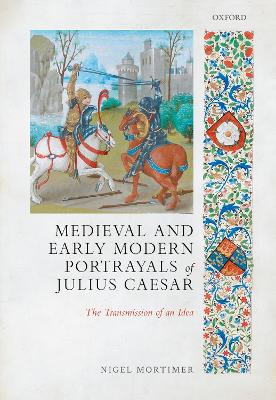Julius Caesar, ancient Rome's most colourful leader, has been a subject of controversy for more than two thousand years. In the classical world he was celebrated as an inspired military commander, as a law-giver and orator possessed of outstanding drive and intellect. He was also denounced for his ambition, cruelty, concupiscence, and for his overthrow of a noble republic. Over the centuries almost every conceivable characteristic has been attributed to him. His
murder—the world's most famous political assassination—began a process which led to the inauguration of the imperial rule that would last for the rest of Roman time.
Throughout the medieval and early modern periods Caesar was central to narratives of conquest and resistance, of kingship and subjecthood, of liberty and despotism. There was a time, however, when he was not the most storied figure from classical antiquity. The post-classical phenomenon of a chimerical and ambiguous Caesar is born in thirteenth-century France when the author of the Li Fet des Romains, a monumental prose life of Caesar, chose to complicate the influential view of a
monstrous Caesar found in Lucan's epic poem Bellum civile: this decision gave birth to the complex figure that has fascinated ever since.
This book offers original translations of texts written between 1170 and 1574 in French, Latin, Italian, and Middle English, accompanied by commentaries which enable the reader to chart the evolution of the Caesar phenomenon throughout the medieval period right up to his first appearances on the early modern stage.
- ISBN10 0198847564
- ISBN13 9780198847564
- Publish Date 11 June 2020
- Publish Status Active
- Publish Country GB
- Imprint Oxford University Press
- Format Hardcover
- Pages 736
- Language English
